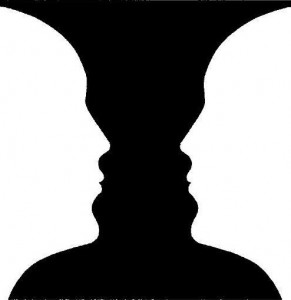Looking Beyond Family Labels to Find the Truth of Your Experience
 I have found it to be a very powerful experience to realize my freedom in relationship to my family of origin. Many of us even as adults feel bound to our families in some way. We feel obliged to participate or engage in ways of relating that we do not enjoy.
I have found it to be a very powerful experience to realize my freedom in relationship to my family of origin. Many of us even as adults feel bound to our families in some way. We feel obliged to participate or engage in ways of relating that we do not enjoy.
Something about the realization that I am no-longer obligated to be part of their lives, to participate in any particular way and that I no-longer depend on them for my survival has given me a great sense of freedom. They are just human beings within the vast world of human beings, and while I do have family history and connection I am still totally free to choose how and if I relate to them. It IS my choice, and when I come from choice and knowing what I’m choosing, I take back my power.
We have a whole lot of cultural messages, stories and beliefs about what it means to be family, how we are supposed to relate, what we do or don’t expect from each other. These kinds of stories and expectations can have us relating out of sense of guilt and obligation and can blur what is truly happening for us in relationship to other human beings. The label of daughter, of mother, of uncle, sister, brother, father etc. can color our awareness of our true experiences and feelings about familial interactions and engagements.
So, what if we could step back just a little? What if, for the moment, we could put aside such labels and take a closer look at our experience with this other person outside of the family role or label?
TRY THIS:
Think of someone in your family…
Can you imagine this family member outside of the role or label that you’ve given them? Instead of DAD, can that man just be an older man in your life?
Instead of your LITTLE SISTER, can she just be another woman that you know? …
Get the idea? Really see if you can create that space to see them a bit at a distance, as a person outside of the family label they have to you. As you ask yourself the questions below, really sit with them, sit with your experience and see what truths emerge.
Explore These Questions:
- If this family member is just another person, just another human being to whom you have no ties or obligations, no family expectations, how would you feel about them?
- How would you feel about your interactions?
- Is the way they treat you a way you enjoy being treated and that you would tolerate if this were just another person and not a family member?
- If not, then why when you add back in the family label, do you allow yourself to be treated this way? (Maybe you DO have a good reason, or maybe you don’t and are allowing yourself to be mistreated or abused just because someone is “family”.)
- What about this person makes you want to engage or connect with them? What about this person do you value?
- If this were someone you were to meet, would you like them?
- Would you want to know this person, would you want to be their friend or have any sort of relationship with them?
It was helpful for me to think, “if these people weren’t my parents (mother, sister, uncle, etc.) and they engaged with me in the ways that they are engaging how would I feel? How do I feel when other people relate to me in this way?”
Does anything in your experience shift when you ask yourself these questions? What awareness insight or understanding to you have about your relationship to this member of your family?
So often in families we have learned to downplay or discount the full impact of how others have treated us in ways that we might not do if it was just some other person that we know.
What would happen if you could fully own your experiences in your family and the impacts they have on you? Not out of blame or guilt toward others, but to fully own how something has affected you and to respect yourself, your needs and your experience rather than downplay the situation?
If you acknowledged you in this way, how would you choose differently?
I have found that by doing this something shifts in me. I stop needing family members to behave or engage with me in particular ways or to meet my needs in order to validate them. I am validating my needs, and my experience. I know they are just people like everyone else and I am free to choose how I will relate with them (or not). I can recognize the values and limitations of my engagement. I am no-longer trying to get them to prove that my needs matter. I KNOW they matter. If I don’t like the relationship I am having I can use what little power I have to make changes or I can choose to engage with others with which I experience greater fulfillment. Whatever I choose, however I relate with my family, I can recognize that it is my choice, and in this recognition, I am free!



I just noticed that I’m not a parent and my perspective is very much one coming from an Adult child without children. How does this fit if you are a parent and explore this in relationship to your adult children? Cultural expectation is that parents will always be there for their children even though that is often not the case. And if you have young children, what comes into play here in regards to extended family and does that make this more challenging?
[…] If these people weren’t my parents, sister, brother, etc what kind of relationship would I want to or enjoy having with them if any? […]